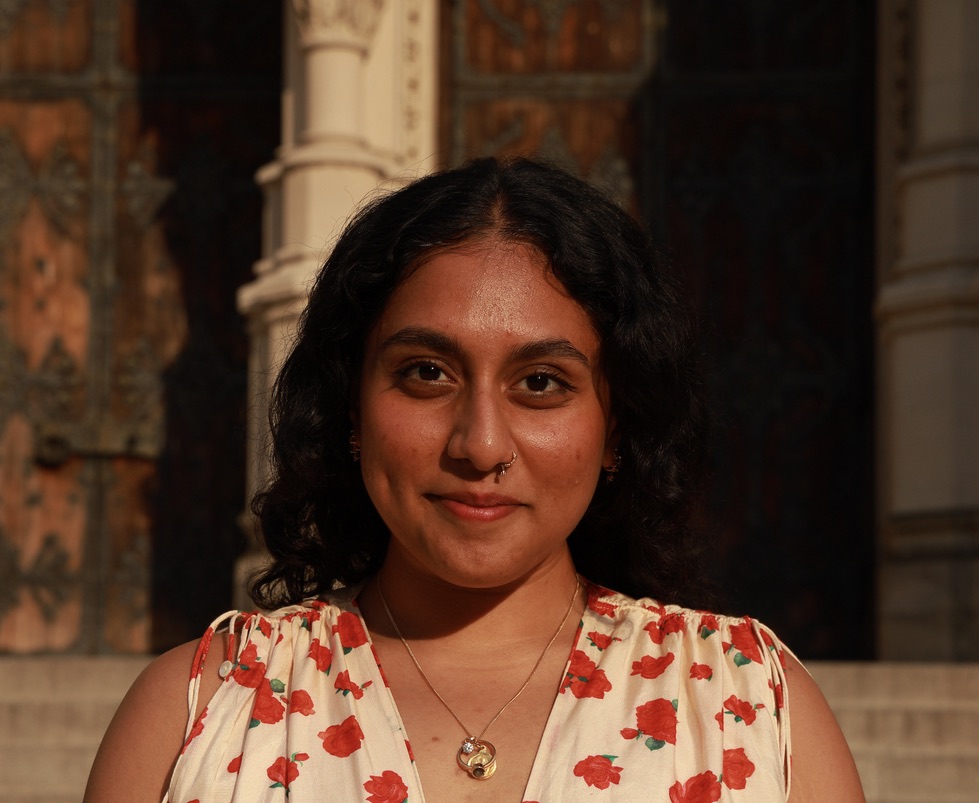
Ramya Arumilli
| Grant Category: | Fulbright-Nehru Student Research Program |
| Project Title: | Healing Regimens of the “Fertile Subject” in Andhra Pradesh and Telangana |
| Field of Study: | Anthropology |
| Home Institution: | Barnard College, New York, NY |
| Host Institution: | Indian Institute of Science Education and Research Bhopal, Bhopal, Madhya Pradesh |
| Grant Start Month: | September 2025 |
| Duration of Grant: | Nine months |
Brief Bio:
Ramya Arumilli is a recent graduate of Barnard College, where she studied medical anthropology and Sanskrit. Passionate about South Asian medical knowledge systems, expansive modes of healing, and gynecological healthcare, Ramya’s academic interests lie at the intersection of medical anthropology, religion, and feminist science and technology studies.
As a Laidlaw Scholar at Barnard, she studied menstrual health practices in India within the contexts of Ayurveda, Hindu goddess worship, public health interventions, and media representation. Her senior thesis, titled “Religiopolitical Care: Pro- and Anti-Abortion Advocacy in New York City”, was an ethnographic study of abortion-centered religious and political advocacy groups, and of the protest site of a Planned Parenthood clinic in Manhattan. Through these experiences, she was exposed to Hindu and Christian theological conceptions of reproduction in South Asia and the West.
Throughout her undergraduate years, Ramya was a research assistant at the Barnard Center for Research on Women, where she supported and produced feminist research on social movements using archives and oral histories. She was also the co-lead organizer of the Reproductive Justice Collective and a scientific review editor for GYNECA, Columbia University’s undergraduate gynecological health journal. In her free time, she enjoys reading feminist literature, cooking, visiting museums, and practicing yoga.
Ramya’s Fulbright-Nehru research program is studying three significant modes of healing in the Indian Subcontinent – biomedical, spiritual, and indigenous – within the context of fertility treatments in the Telugu-speaking states of India. Her research is based in the cities of Hyderabad, Visakhapatnam, and Rajahmundry, where she is analyzing – within the contexts of gender, religious beliefs, political affiliation, locality, caste, and socioeconomic status – the treatment methods chosen by families seeking fertility care. She is also studying cases in which Ayurveda and other forms of traditional medicine (such as Unani, Siddha, naturopathy, and homeopathy) are prioritized, and how this balances with forms of biomedicine such as IVF. Her research is expected to inform the fertility care provided in biomedical contexts, thereby supporting a patient through as many modes as necessary.